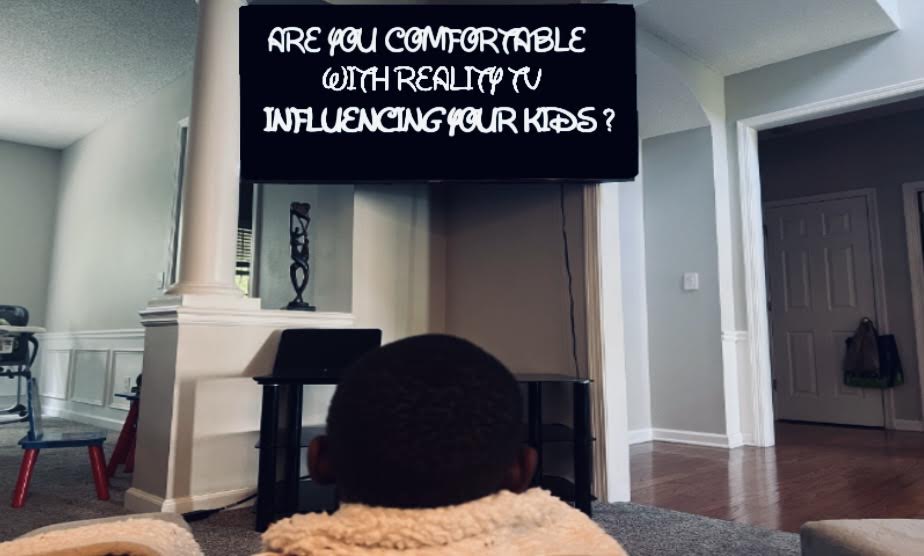Reality TV allows immoral behaviors, lifestyles and mindsets to progress into mainstream media. Networks such as Zeus Network and NowThatsTV promote violence on their shows. With an average of 52% of American adults viewing reality tv, society allows reality TV to flourish. These reality shows that the population observes tend to raise viewership due to drama because drama shows gain more attention. This supposed real-life drama rises up at the top of the charts as an in-demand TV series.
These reality TV shows display acts such as physical violence; “Floriabama Shore”demonstrates this, as the cast members constantly fought and argued. Aggression and drug usage seem to also frequently recur on these shows. Not only do reality TV shows present these behaviors and lifestyles, they allow these shows to progress onto networks and streaming services which promote negative behavior to billions of watchers. A shocking 63% of children ages 4 to 6 watch an hour of reality TV a day. Reality TV influences younger children, and watching reality TV creates an impression which could result in them copying what they see. Society shouldnt normalize children fighting and arguing, as they see adults do on shows such as “Jersey Shore” , “90 Day Fiance” and “Real World Portland” .
“I don’t think children should be watching these programs because seeing the immoral habits normalized in that context, the child would probably implement the ideas into their own life and end up hurting loved ones and other people. I know they use the drama as a way to draw attention and gain viewers but projecting that behavior shouldn’t be encouraged,” senior Elijah Waweru said.
A plethora of entertainment watchers may argue that reality TV should not receive different treatment from normal television shows as they state reality TV gives a voice to different parts of society. Nonetheless, normal drama shows, although scripted, still provide the same drama, fighting, drug usage and violence as reality TV shows. For example, shows such as ”Euphoria” display these same habits, but viewers know that the actors follow a script and that the show does not resemble reality. Statistically, reality TV show watchers compare their lives to the shows they watch, a statistic that does not apply to entertainment watchers. Reality TV shows document real life, which may factor into why viewers experience a change of emotion.
Watching Reality TV brings negative effects on the spectator’s mental state. During a survey in 2021, 60% of people who watched reality TV felt an advancement of aggression in their demeanors. Nearly 24% of people ages 18 to 24 say that reality TV makes them feel insecure about their own bodies. The unrealistic standard of influencers or cast members financially and physically could cause people to believe as though they should live that lifestyle. All forms of television can impact the younger viewers; Kids gain an impression from these shows, so putting these shows on various platforms can lead to kids watching it and trying to imitate what they see.
Reality TV stars frequently experience abuse on their shows. Director Jeremy Hartwell spoke on the abuse he faced on the set of ”Love is Blind”, the lack of food he received and the vast distribution of alcohol presented to him. Recently, reality star Smiley claims that her time on “Baddies East” led to her suffer an unfortunate miscarriage. On the same show, social media influencer WoahVicky spoke out about the physical attacks she faced on set as well as her pending lawsuit against a fellow cast member.
“I can’t remember the name of it, but I once saw a clip from a reality TV show where they were strippers, and were promoting strippling. I don’t think stripping should be promoted. It really depends on what the show is and what is going on. I would rather my future kids watch ‘Keeping Up with the Kardashians,’ rather than ‘Joselines Cabaret,’ or ‘Baddies East’, which promotes violence and fighting,” senior Sole Webster said.
From showcasing the college experience to a Kardashian way of living to life in a prison facility,reality TV programs document different lifestyles and showcase the lives of others . The main premise revolves around documenting “unscripted” real-life scenarios, but even the popular shows continue to set up their cast members to promote a storyline. Actors experience setups throughout their time on their shows, with ex-reality stars turning against and then suing their programs. For example, the lawsuit filed by Shannon and Shannade Clermont who sued “Oxygen Network” after a violent attack by other cast members and the destruction of their items due to the cast members violating their belongings, as well as Jeff Dilman who sued “Spike TV” for false imprisonment as well as homeowner fraud.
“These shows encourage violence as well as other immoral habits, such as cheating and consistently using derogatory words and comments. And with so many people supporting these shows, as well as other reality shows with similar messages, these habits will spread like diseases from person to person, causing more violent episodes,” Waweru said.










